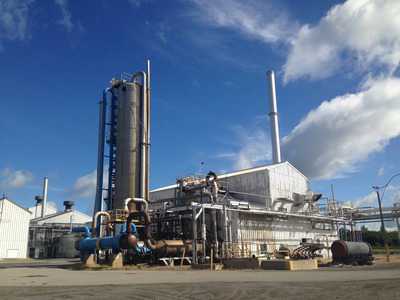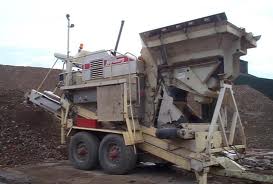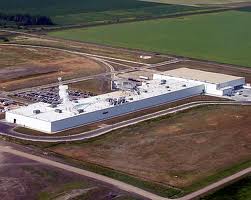Notice of Construction Program (New Source Review)
What are the requirements if my business is a new source of air pollution in Benton County, or is modifying our existing source of air pollution?
A list of the types of businesses or facilities that may be subject to this program is here.
Facilities that are located in Benton County and are:
- installing new equipment that produces air pollution, or
- modifying existing equipment that produces air pollution, or
- changing fuel type (e.g. diesel to natural gas) or usage rates, or
- changing an operation that would change the amount of air pollution produced,
are required (RCW 70.94.152 and RCW 70.94.153) to go through a “New Source Review” (NSR) process.
This NSR is done through the Notice of Construction Program. NSR is a preconstruction program which means that the entire process, resulting in an Order of Approval, must be completed before construction begins.
The Washington Administrative Code requirements for New Source Review are spelled out here.
There are several steps to the process of acquiring a Notice of Construction approval. NOC Process Flow Chart is a flow chart for the entire process.
Meeting with BCAA
A pre-proposal meeting with the BCAA is a good way to start. At this meeting we can learn about your project and provide guidance as to what regulations would apply, and how to meet them. BCAA can provide guidance and information on how to determine potential emissions, and how to best mitigate them.
SEPA Process:
First, a SEPA Checklist and a Determination of Non-Significance (DNS) are required before the BCAA can allow the facility to operate. This is a state requirement on the BCAA. Generally, other agencies, such as the county or cities, will have already issued a DNS for a project. If not, then the BCAA can issue a DNS Usually if a DNS does not exist, the process will take a minimum of fourteen (14) days to issue the DNS. Facilities should plan for this potential delay.
SEPA documents are found here.
NOC Process:
Once the DNS is in place, the owner or operator of the facility next files a Notice of Construction, or NOC, application to the BCAA. The most common facility operations have forms specific to the operation; facilities that are not specifically listed can use the “General NOC” form.
NOC forms are here.
NOC fees are here
Diagram of overall process is NOC Process Flow Chart
Information that should be submitted with an application:
The application should be submitted on the Notice of Construction and Application for Approval form provided by Benton Clean Air. The application should describe the air contaminant source, any connected equipment, and be accompanied by:
- completed and signed forms
- a set of plans that fully describes the proposed source, including distance and height of buildings within 200 feet of the source,
- the estimated emissions that will result from the proposal, or sufficient information for Benton Clean Air to calculate the expected emissions,
- the proposed means for control of emissions,
- the base fee, and
- a SEPA checklist or DNS (see above)
After the NOC application has been submitted and the application fee paid, the BCAA has 30 days to review the application and to determine if it is complete. If the application is determined to be incomplete, the 30-day clock is reset. Therefore, it is in the best interest of the source that the application is complete and accurate.
Once determined to be complete, the BCAA has 60 days to issue an Order of Approval (permit) to operate. Usually the process is less than 60 days, but in some cases, especially in unusual or complicated facilities, the process may last longer.
Public Notice
Some facilities may be required to have a 30 day public comment period. Should this be a part of the process, the final Order cannot be signed until this comment period is complete, and all comments have been considered.
Order of Approval
The final product is an Order of Approval to operate, which will outline the specific requirements under federal, state, and local air quality regulations that will allow the source to operate in compliance with the law.
Sources that do not follow the NOC process are subject to enforcement action under Washington State law. If a facility has any questions about the process, a representative should contact the BCAA.



 The Federal Clean Air Act requires all states to have statewide operating permit programs for businesses and industries that are the largest sources of air pollution. An Air Operating Permit (AOP) contains all the requirements that apply to an air pollution source. Ecology, the Energy Facility Site Evaluation Council (
The Federal Clean Air Act requires all states to have statewide operating permit programs for businesses and industries that are the largest sources of air pollution. An Air Operating Permit (AOP) contains all the requirements that apply to an air pollution source. Ecology, the Energy Facility Site Evaluation Council (



